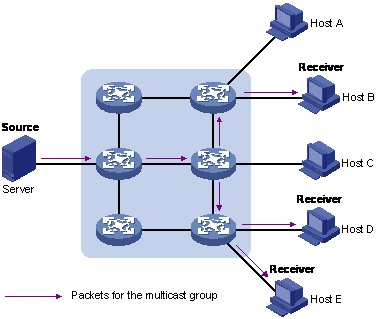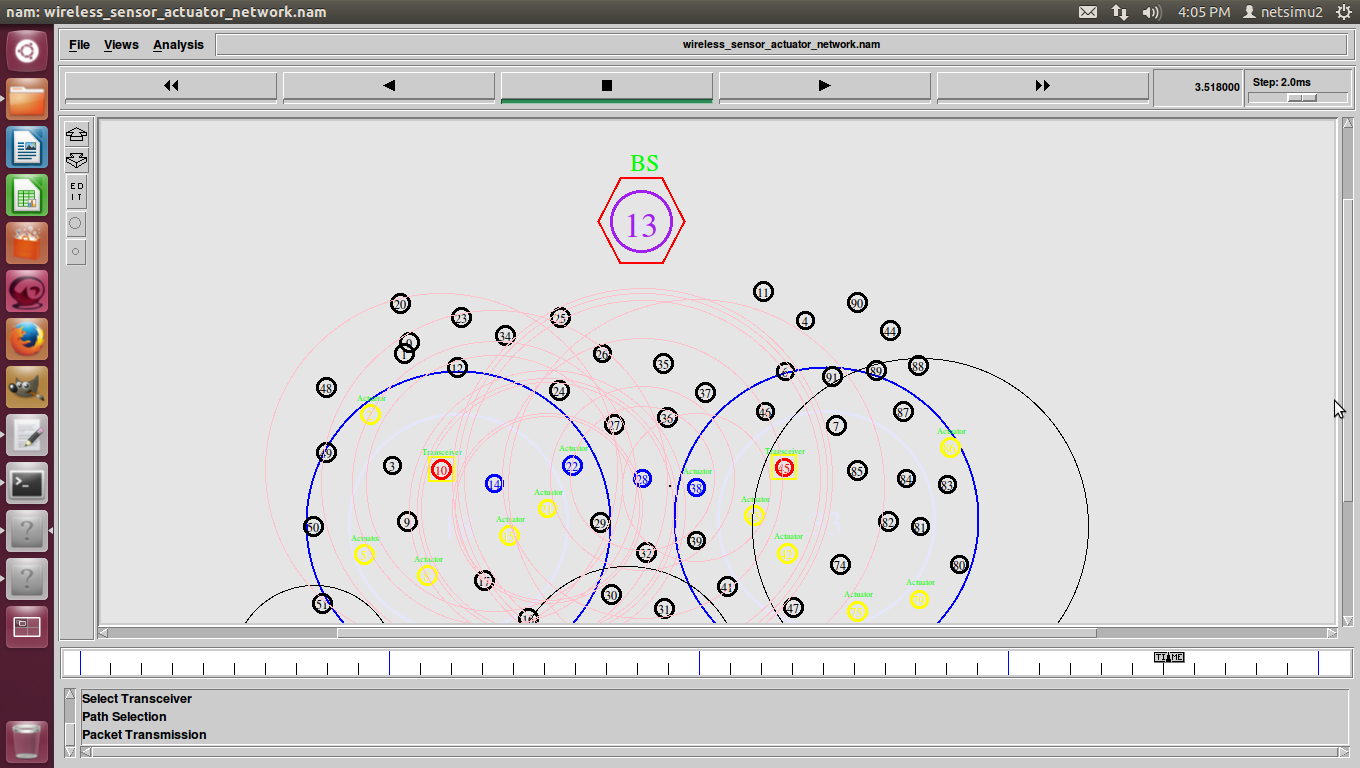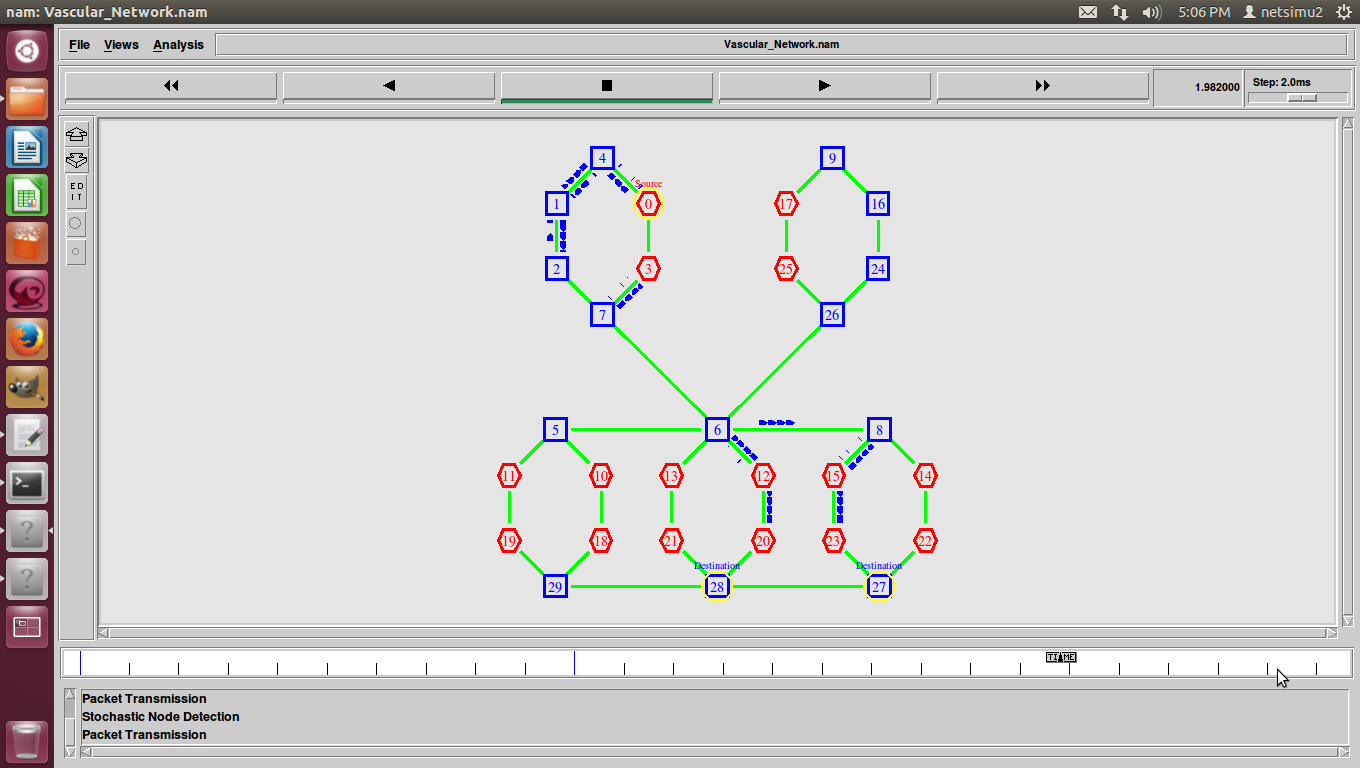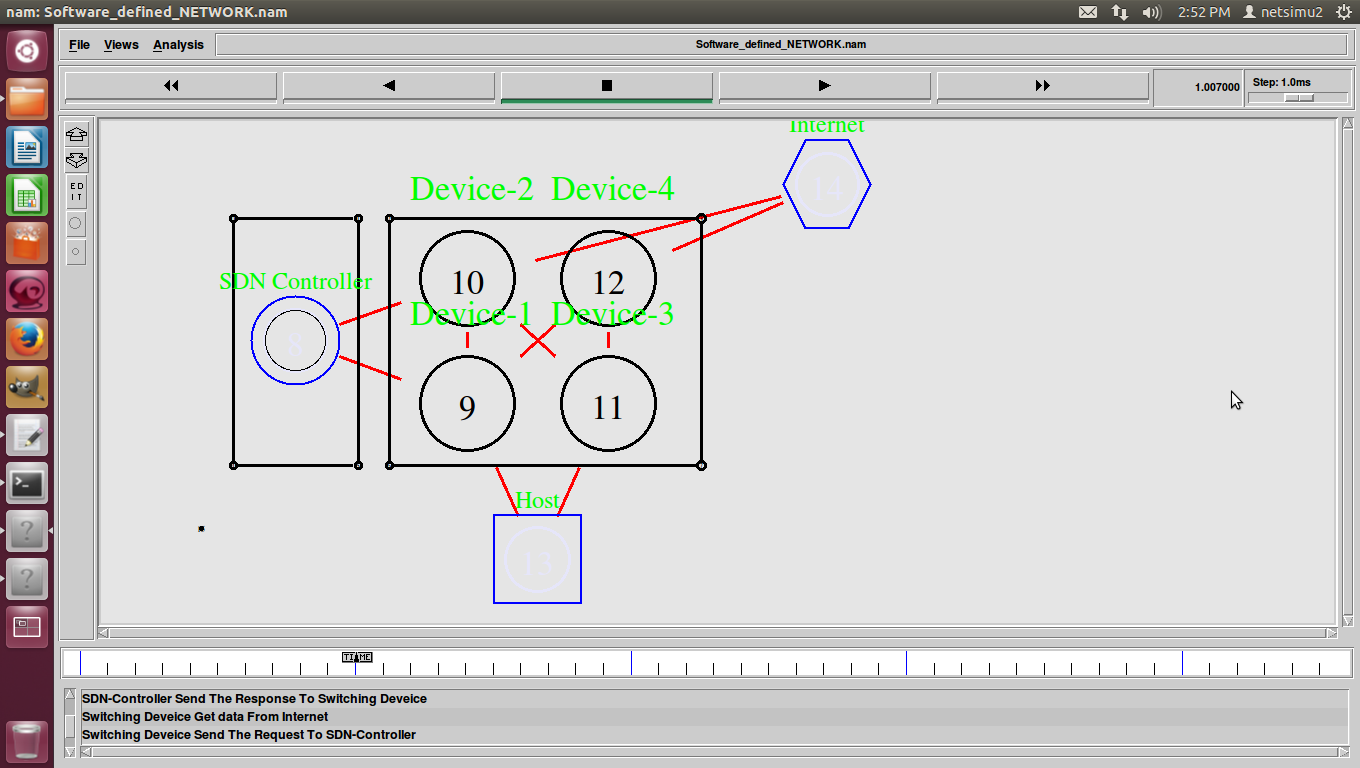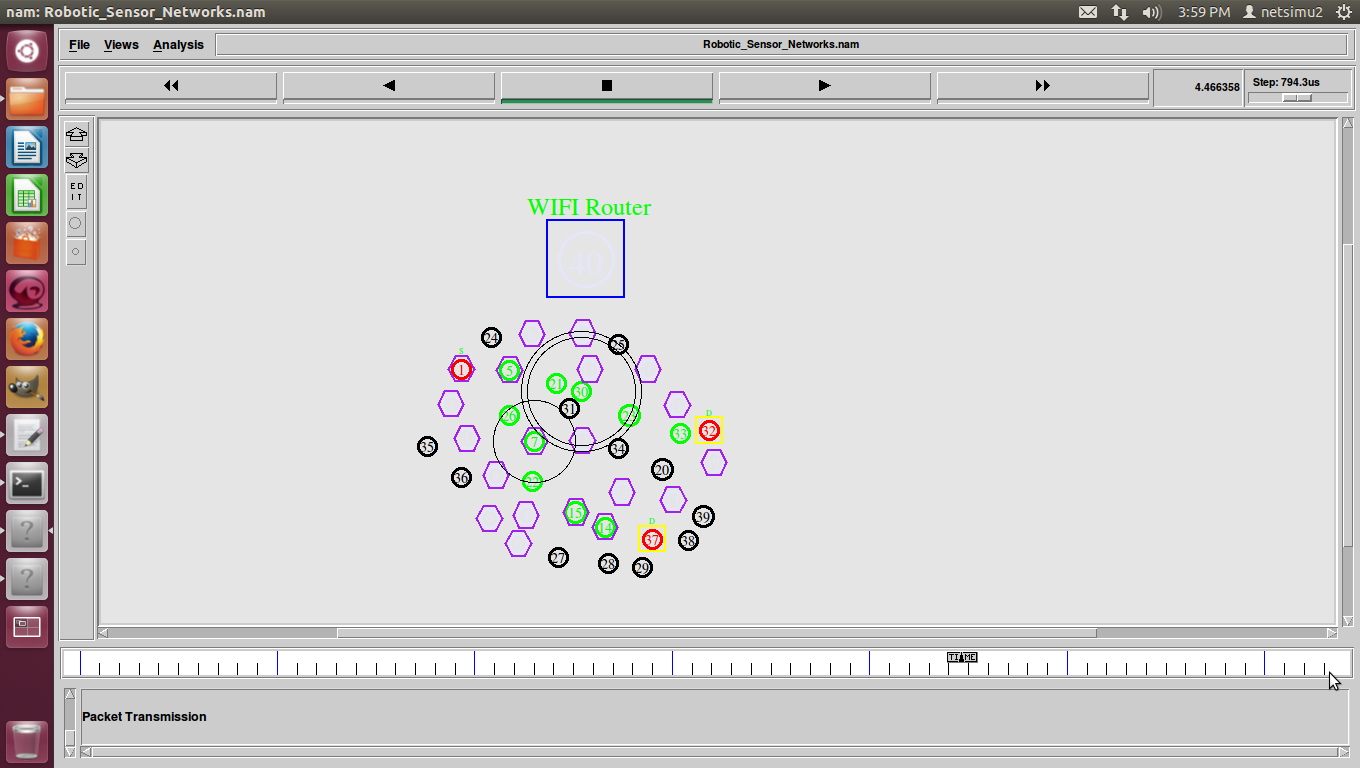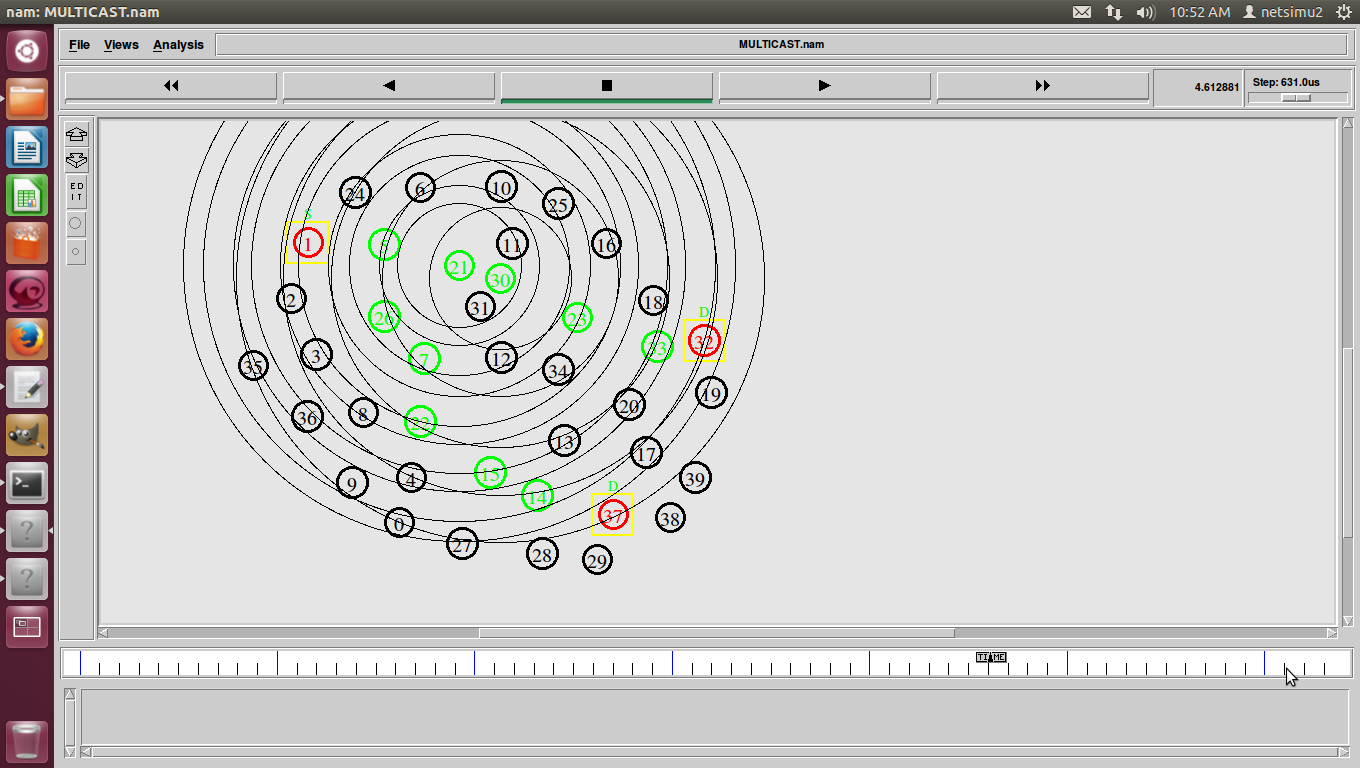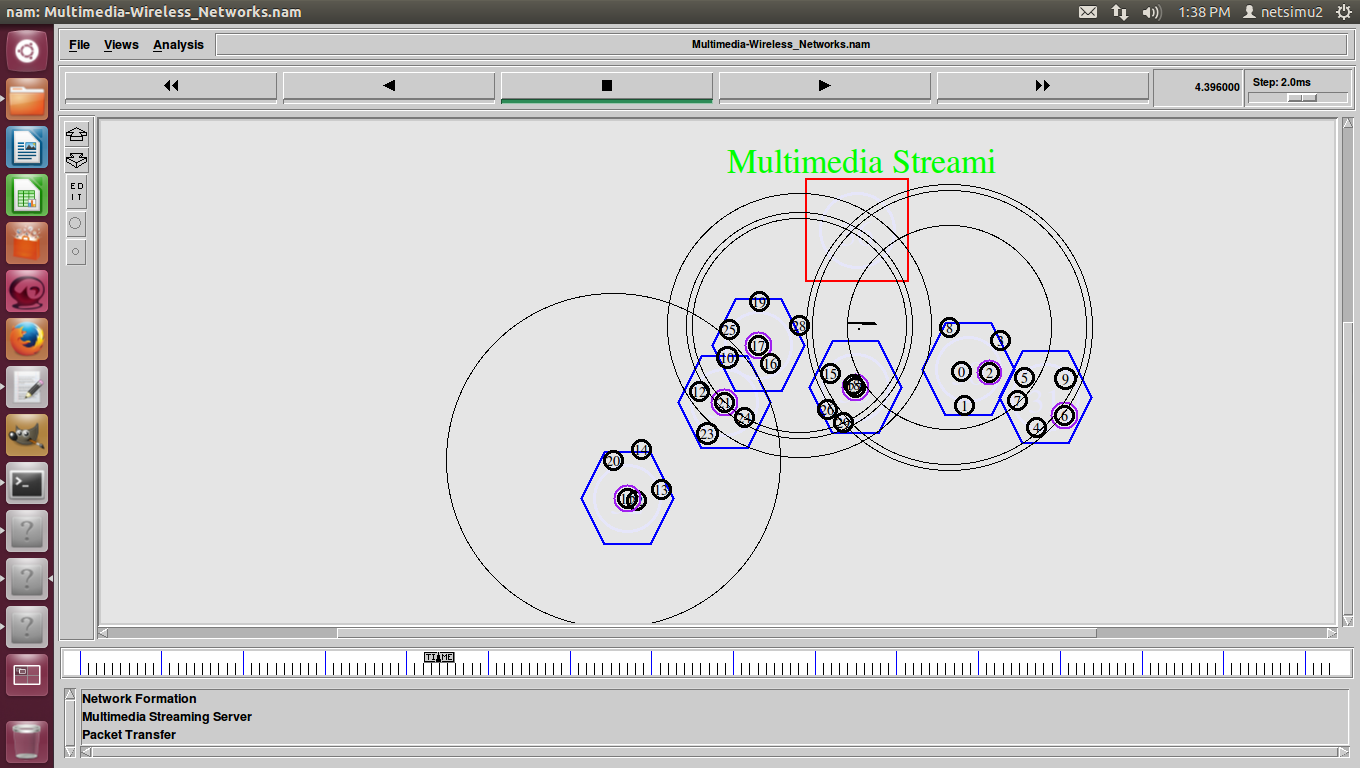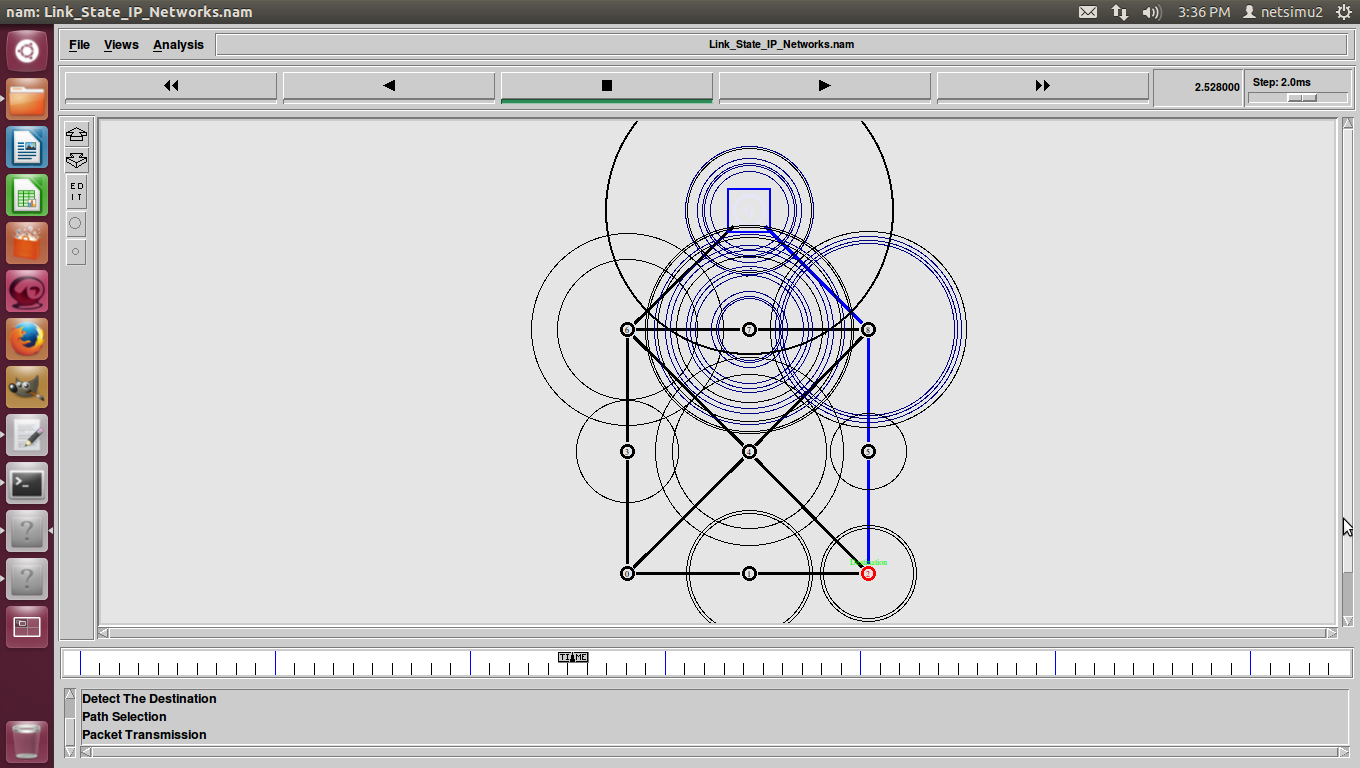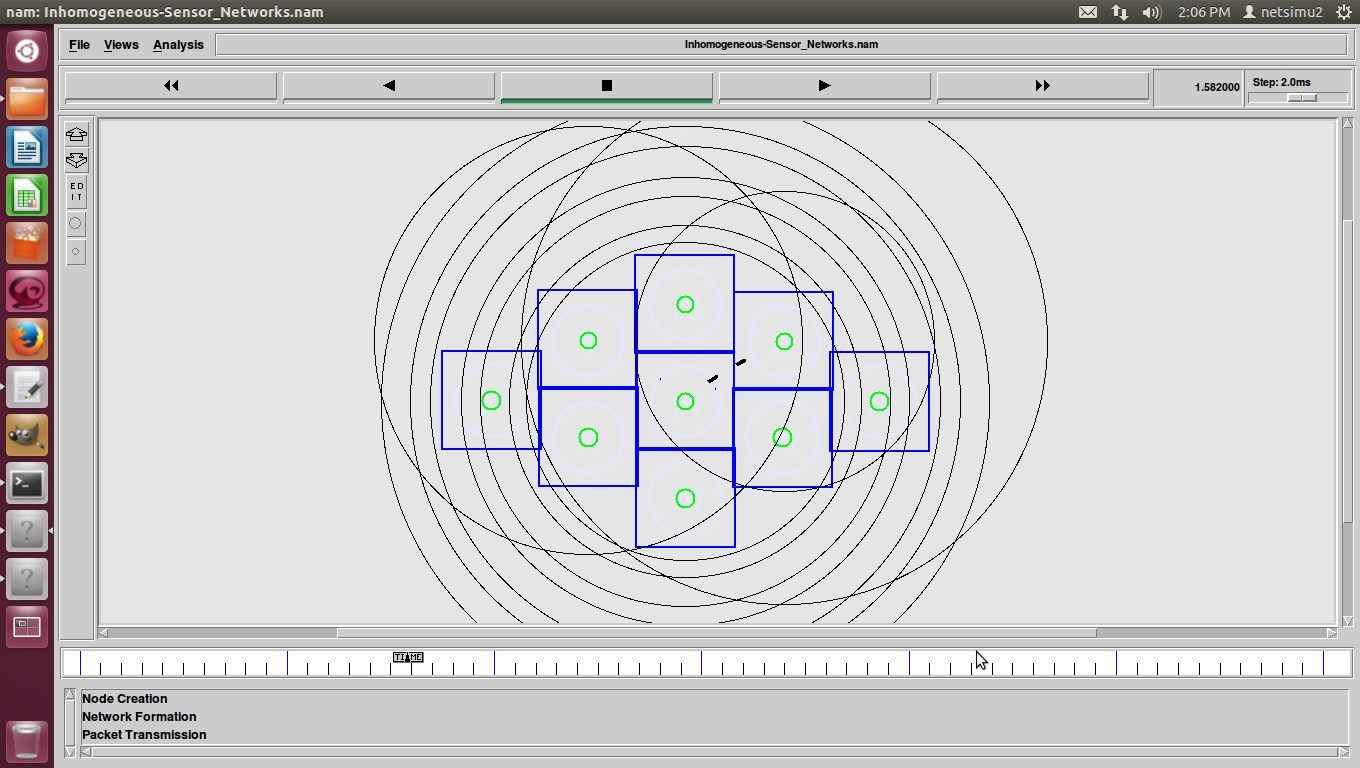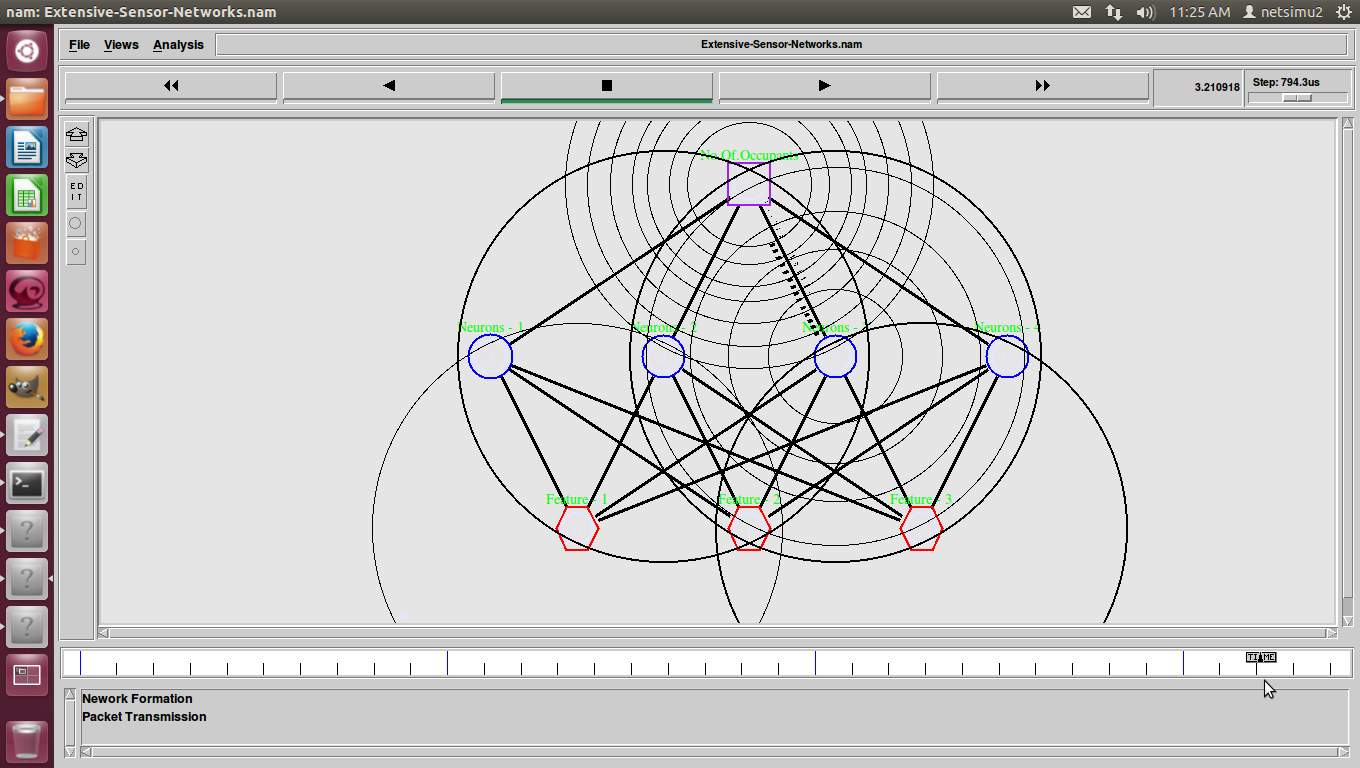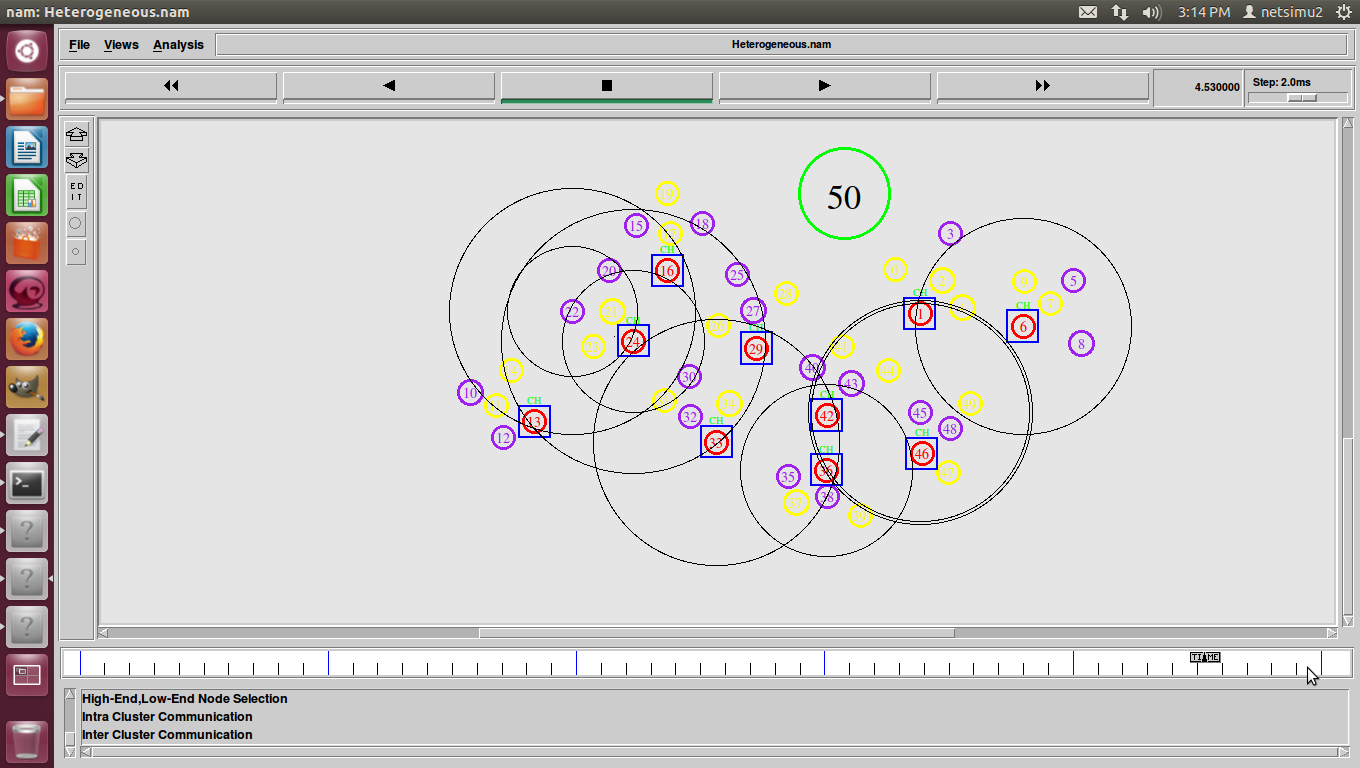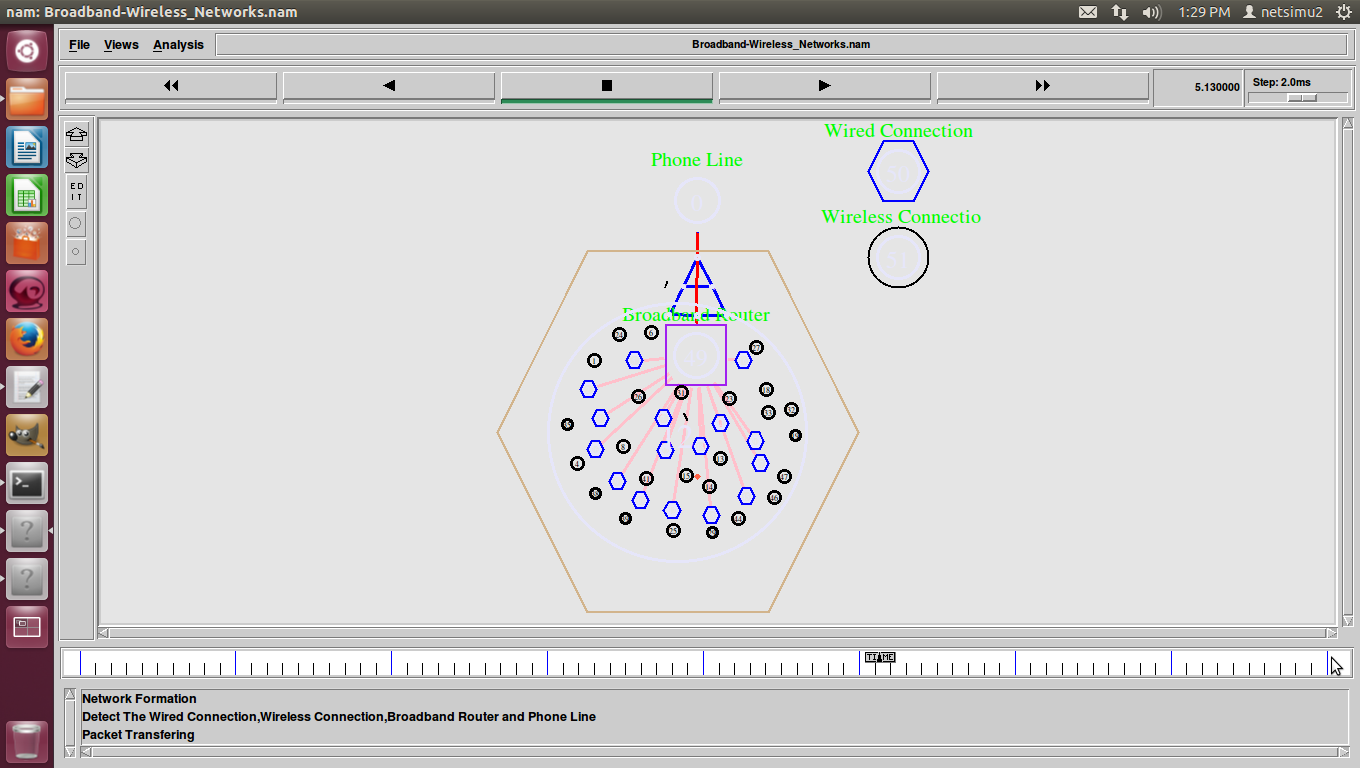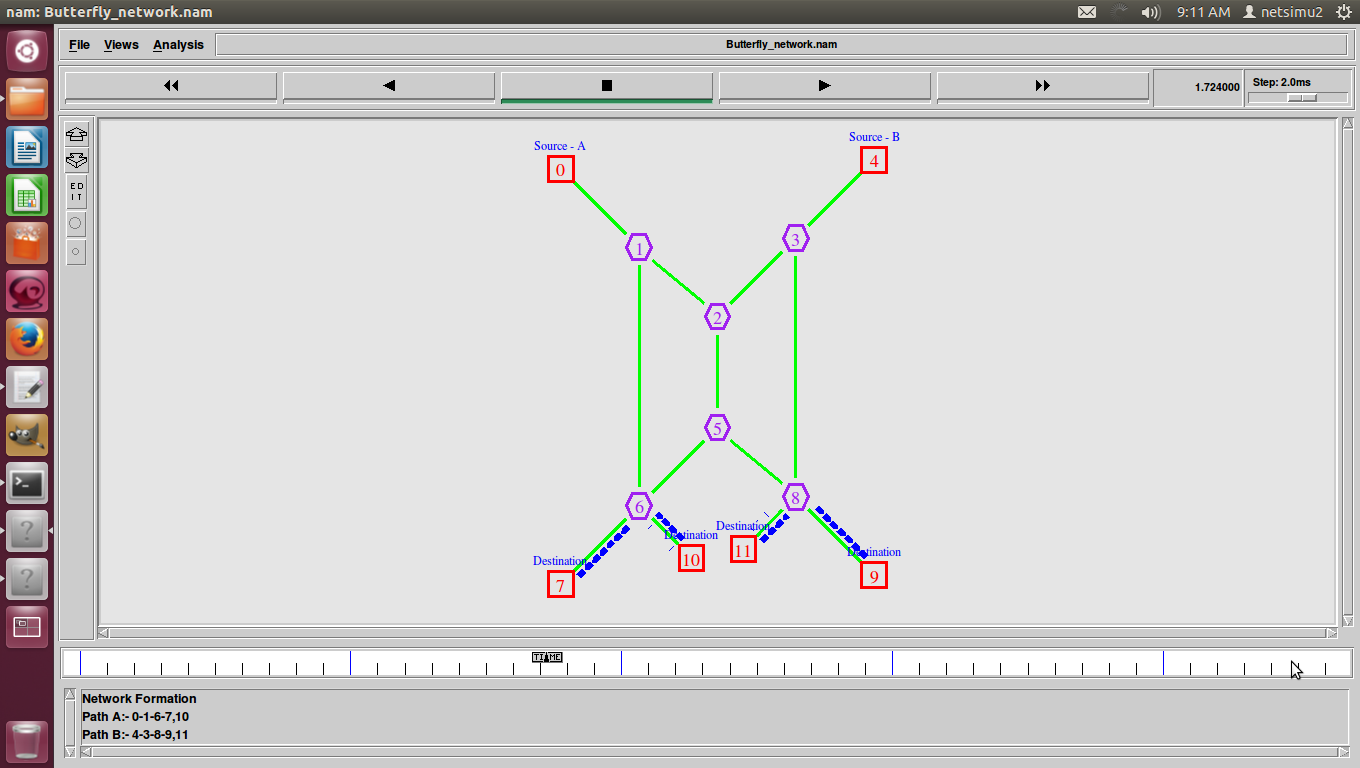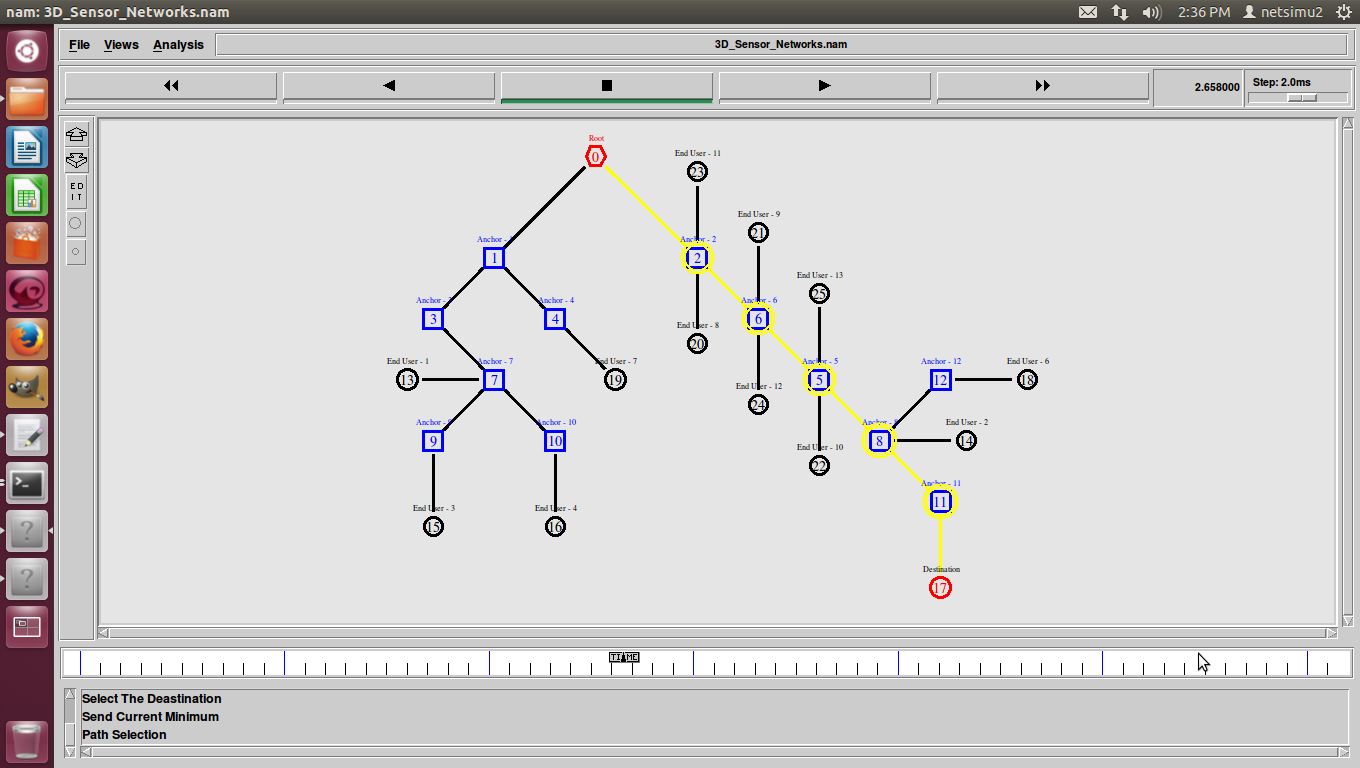Ns2 Multicast Projects, Multicast is communication between a single sender and multiple receivers on a network
What is multicasting?
- Multicasting is similar to broadcasting, but only transmits information to specific users.
- It is use to efficiently transmit streaming media and other types of data to multiple users at one time.
Applications of Ns2 Multicasting Projects
- Streaming multimedia over internet like live TV and internet radio.
- Video conferencing and webcasts.
- Stock quotes.
- Digital copies of software
- News.
Advantages of Ns-2 Multi-casting Projects
- Reduce internet bandwidth usage.
- It will increases the productivity.
- Use group address.
- Can be used across a WAN.
- Datagram received only by the interfaces that want it.
- Messages are UDP so there is no connection setup or teardown.
Sample NS-2 code for Multi-casting Projects
set ns [new Simulator]
$ns multicast
set f [open out.tr w]
$ns trace-all $f
$ns namtrace-all [open out.nam w]
# allocate a multicast address;
set group [Node allocaddr]
# nod is the number of nodes
set nod 6
# create multicast capable nodes;
for {set i 1} {$i <= $nod} {incr i} {
set n($i) [$ns node]
}
#Create links between the nodes
$ns duplex-link $n(1) $n(2) 0.3Mb 10ms DropTail
$ns duplex-link $n(2) $n(3) 0.3Mb 10ms DropTail
$ns duplex-link $n(2) $n(4) 0.5Mb 10ms DropTail
$ns duplex-link $n(2) $n(5) 0.3Mb 10ms DropTail
# configure multicast protocol;
DM set CacheMissMode dvmrp
set mproto DM
# all nodes will contain multicast protocol agents;
set mrthandle [$ns mrtproto $mproto]
set udp1 [new Agent/UDP]
set udp2 [new Agent/UDP]
$ns attach-agent $n(1) $udp1
$ns attach-agent $n(2) $udp2
set src1 [new Application/Traffic/CBR]
$src1 attach-agent $udp1
$udp1 set dst_addr_ $group
$udp1 set dst_port_ 0
$src1 set random_ false
set src2 [new Application/Traffic/CBR]
$src2 attach-agent $udp2
$udp2 set dst_addr_ $group
$udp2 set dst_port_ 1
$src2 set random_ false
# create receiver agents
set rcvr [new Agent/LossMonitor]
# joining and leaving the group;
$ns at 0.6 "$n(3) join-group $rcvr $group"
$ns at 1.3 "$n(4) join-group $rcvr $group"
$ns at 1.6 "$n(5) join-group $rcvr $group"
$ns at 1.9 "$n(4) leave-group $rcvr $group"
$ns at 2.3 "$n(6) join-group $rcvr $group"
$ns at 3.5 "$n(3) leave-group $rcvr $group"
$ns at 0.4 "$src1 start"
$ns at 2.0 "$src2 start"
$ns at 4.0 "finish"
proc finish {} {
global ns
$ns flush-trace
exec nam out.nam &
exit 0
}
$ns run
Tweet


